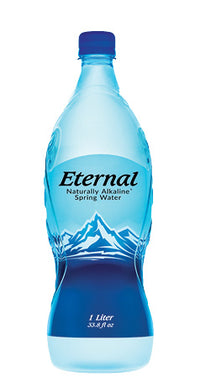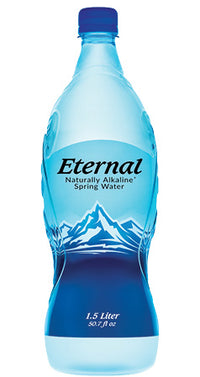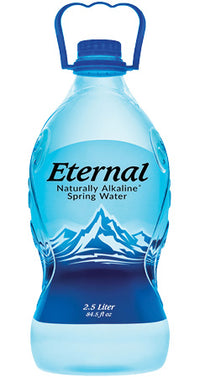 Guest Contributor: Joe Abunassar, Founder of Impact Basketball, former Division 1 Basketball Coach, and 21x Ironman finisher
Guest Contributor: Joe Abunassar, Founder of Impact Basketball, former Division 1 Basketball Coach, and 21x Ironman finisher
For the past 26 years, I have had the opportunity to train and develop over 300 NBA basketball players and work closely with them throughout their careers. I spent entire careers with players like Kevin Garnett and Chauncey Billups (both Hall of Fame players), Tayshaun Prince and Kyle Lowry (NBA Champions and Gold Medalists) and young stars of today Tyrese Haliburton and Josh Green. I have guided their careers on and off the court, improved their skills and taught them the importance of taking care of their bodies, as it is their best asset as athletes.
Our training system has been used around the world to help players at all levels maximize their potential in all ways. Our system is built on four pillars of focus:
-
Skills development
-
Performance Training (strength and conditioning)
-
Mental Approach to Training and Playing the Game
-
Nutrition
The fourth pillar, nutrition, is one that is simply not negotiable for us and is necessary to accomplish goals in the other three areas. And nothing is more important to nutrition than hydration. As simple as it sounds, proper hydration is the fuel that powers our athletes, every day. We work with the most talented players in the world, but the concept is the same for all players, and all athletes, at all levels. Dehydration can derail performance faster than anyone can imagine. It can limit recovery and lead to injury as well. As we train our players in the Vegas summer heat, we know that making sure they are properly hydrated — and educated on hydration — is a key piece in their success.
I have a unique perspective on the benefits of proper hydration as I have dedicated much of my adult life to the challenge of Ironman triathlons, having completed 21 races, including the World Championship in Kona, HI. I can tell you from personal experience, and moments that were not so enjoyable, as soon as dehydration hits … all the training in the world is worthless. The body simply cannot function properly. But, even without elaborate sweat testing, I was able to fix the problem and learn exactly how to hydrate properly to perform at my best. My message to my athletes is no different. If you want to perform at your best, you must drink water. It takes planning and discipline, but making sure you drink enough water is something that should be a big part of your life. Anyone who has ever been in an endurance event and hit a point of dehydration will tell you, there is no “mental toughness” or “pushing through” when the body is dehydrated. As tough as people may be, the body will crumble without proper hydration.
We are all not NBA players, or Ironman triathletes, but many of us try to live a healthy lifestyle and push ourselves in our own way. To get the most out of yourself physically and mentally, proper hydration is essential — whether you are playing in the NBA or simply trying to live a healthier life. Drinking proper amounts of water makes us better, in every way. It makes us run faster, shoot the ball better, jump higher, breathe easier, recover faster and think more clearly. Research is conclusive and readily available to show that being even a little dehydrated (1–2% of body weight) causes significant reduction in performance levels and quality. Water is a powerful fuel for the body.
The Benefits of Water for Athletic Performance
We have all heard how much of our body is composed of water (up to 60%), but do we really know what drinking enough water does for us? I have a responsibility to get elite athletes to perform at their highest level. There are millions of dollars at stake in most cases. We have spent a lot of time figuring out how much water our players need to drink each day to maintain proper levels of hydration and perform at their best. Why is it so important to my athletes? Dehydration can affect:
-
Oxygen delivery
-
Blood flow
-
Pliability of tissues
-
Temperature regulation
-
Cognitive performance
-
Reaction time
Let’s take a look at each of these areas, and how they affect an elite, NBA athlete.
Impact of Dehydration on Oxygen Delivery
A decrease in oxygen delivery will have a huge impact on an athlete’s “wind.” Our players spend multiple hours each day conditioning their bodies to be able to play at full speed without getting winded. When dehydration hits and oxygen delivery decreases, all this training will be negated. In our world, there is nothing more debilitating to an athlete than being unable to push the body because of a lack of conditioning. Being even a little dehydrated can make a well-conditioned athlete feel out of shape. Even the most skilled player cannot “push through” this and the end result is poor performance.
The Role of Hydration in Blood Flow
Proper blood flow is critical for so many things in our bodies, including delivering oxygen to the muscles during exercise. If blood isn’t getting to the muscles, the muscles won’t work well — no matter how much training has been done. Lactic acid will build more quickly and fatigue will set in much sooner. We may have all experienced it at some point, but there are days when our muscles just are not working as usual. We have no energy and no endurance. Dehydration brings this on quickly. I tell my players that if they are going to spend their lives building muscles to allow them to play better, they need to fuel those muscles or the power is not accessible.
Watch as Patrick McCarthy, Director of Sports Nutrition & Sports Science at IMPACT Basketball, breaks down what you should know.
Maintaining Tissue Pliability Through Hydration
When tissues lose their pliability, two things happen. The first and most concerning to me and my athletes is a higher risk of injury. The second is a decrease in mobility and therefore in overall performance. So many muscle pulls or tears are a result of dehydrated muscles. The force we place on the muscles with quick and explosive movements is intense and requires that the muscles be pliable and ready to react. In addition, a decrease in mobility can be extremely costly in the game of basketball. Just a step slow, or a second too late, is a big deal. The danger we face is that our players work out every day, so the idea of coming into a training session dehydrated can and will lead to injury and decreased mobility and performance.
Patrick explains how tissue pliability and hydration are linked.
Hydration and Temperature Regulation
The body sweats to control temperature and maintain stability in all functions. When we become dehydrated, we sweat less, causing our bodies to overheat, which will reduce overall performance. So many of my players have been heavy sweaters. When these guys get dehydrated and their sweat rate is reduced, they feel it immediately in their performance, physically and mentally.
Hydrate Smarter: Subscribe for Wellness Tips
The Cognitive Benefits of Staying Hydrated
When cognitive performance declines, players’ ability to make quick decisions during training and competition will decline as well. Their ability to learn and comprehend strategy will also be reduced. They may start feeling “foggy” and their attention will drift. There are few of us, athletes or not, who have not felt a little disoriented at times. Dehydration is a major cause.
San Antonio Spurs guard Blake Wesley gives us the low-down on how hydration affects his play.
Hydration and Reaction Time in Athletes
As I have said, the margin for error in an NBA workout, or game, is very small. Dehydration slows reaction time significantly. Again, with a lack of blood flow, higher than normal core temperatures, and decreased tissue pliability, reaction time would naturally be decreased.
For Orlando Magic guard Caleb Houstan, hydration plays a key role in his mental clarity, helping him with his game.
Effective Strategies for Maintaining Hydration
Now that we understand how dehydration can negatively affect athletic performance, the focus shifts to how to avoid it. Going back to my Ironman stories, I can assure you from multiple experiences (in addition to hard data) that once the body hits dehydration, it’s too late to bounce back in that training, racing or game session. The key is to stay hydrated. I have found that most of my athletes enter workouts dehydrated, so whatever they are drinking during the workout, simply isn’t enough. While electrolytes are critical in keeping the body regulated, and sports drinks can be useful, water is the base of hydration.
As a general plan, our athletes drink water throughout the day, with at least 20–24 ounces of water within two hours of the workout or game, and another 10–12 ounces right before the workout or game. But they also stay hydrated all day by consuming water throughout the day. Everyone’s needs are a little different, as we all sweat differently, and are working out in various climates and for various durations. Here are some keys to knowing you are hydrated that we teach our players.
-
Your Thirst: Do not wait until you are thirsty to drink. When you feel thirsty, it’s too late.
-
Urine Color: Monitor the color of your urine. This is maybe the most effective way to determine levels of hydration. Dark urine signifies dehydration while pale yellow urine is ideal. If the color is too white, the body is hydrated but may have a slight imbalance of electrolytes, which can also limit performance.
-
Body Weight: Monitor body weight before and after workout to determine fluid loss. In general, our players will drink approximately 24 ounces of water for every pound of body weight lost during a workout.
-
Daily Routine: Drink water throughout the day, including before bed and in the morning to keep hydration levels high.
-
Activity Level: Your need for water will depend on your daily activity. The best way to determine is by monitoring your urine color and body weight, but also by gauging how you feel throughout the workout. If our players are losing their intensity at the 45-minute mark of a workout, we know that their hydration is not adequate, and there may be a possible calorie deficit. In this case it is possible that they have not had enough water throughout the workout, but more likely that they entered the workout slightly dehydrated and just could not catch up.
Which Water Is Best to Drink
What I have found with all my athletes is the best water is the purest, most natural water, that hasn’t been tampered with — which also equates to the best tasting water. We want and ask our athletes to drink water, so we have to give them water they like to drink!
As with all areas of nutrition, the more natural the product is, the better it is for us. We even have athletes who told us “I don’t really like drinking water,” and when we introduce pure, crisp and natural water, they find they have no trouble drinking even more than we recommend.
Taste Matters
As hard as we work to convince them staying hydrated is critical to their athletic performance, providing them with great tasting, natural water is an extremely important factor in our success. For the past 10 years, we have used Eternal Water exclusively with our athletes.
There are a lot of choices out there, but the purity, quality and taste of Eternal have allowed us to be successful in getting our athletes to drink more water. It has worked so well, most of our athletes have Eternal shipped to them during the season, and request that their NBA team stock the water for them throughout the year at the training facility. This is the case for our youth athletes as well, who experience the water at Impact when they train. Once they find a water they like, they stick to it! The goal is hydration, and when the athletes love the water, the plan works.
Conclusion
Hydration is a major key to elite athletic performance. In training over 300 NBA players over the last 26 years, I have found it to be a key in their performance both during training sessions and during games. Being properly hydrated puts the body in an ideal state to perform at the highest level physically and mentally. What I have found is that once players feel that ultimate level of hydration and resulting high level of performance, they make sure they stay at that level. Water is the fuel that allows our bodies to achieve excellence. There are thousands of studies that show why hydration is so important to the human body, and the most powerful study may be the results I have seen over the years that clearly show the power of proper hydration and overall fueling of the body.
As I tell everyone who asks, “If it’s good enough to power the elite athletes, it is good enough for everyone!” So whether you are working to get to the NBA or just working out to stay healthy, drink water, and drink plenty of it.
 Author Bio
Author Bio
Joe Abunassar, a former Division 1 basketball coach, is the founder of IMPACT Basketball. Renowned for his unique approach to player development, Joe combines basketball skills training, strength and conditioning, nutritional programming, and mental conditioning to elevate athletes to their peak performance. Over his career, he has guided some of basketball’s top talents, including many players on current NBA rosters. Joe is a recognized expert in basketball player development. Discover more about his outstanding program at IMPACT Basketball.



